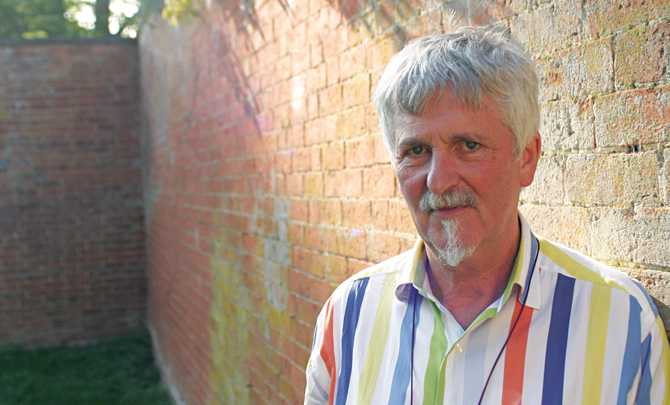Interview: A new song - Reform Magazine
John Bell talks to Stephen Tomkins
At Greenbelt festival on 26 August, 39 years after his ordination, John Bell, the hymnwriter and Iona Community leader, spoke publicly about his sexuality for the first time. ‘I’m gay,’ he said. ‘This is not a confession, it’s an admission … I’ve known this as my identity from before I could read, and I wouldn’t change it because I believe God has made me the way I am. I don’t have a partner, nor have I ever had one for over 30 years since my denomination made it clear to me that I had to choose between my vocation and a relationship.’
After explaining the reasons for his silence until now, he said that he had decided to speak when he heard how the gay Christian teenager Lizzie Lowe took her life in Manchester in December 2014. ‘When there are still young people who doubt God loves them on account of their sexuality,’ he concluded, ‘those of us who are not compromised by our work, who are gay and know the love of God, should not keep silent.’
Reform was at Greenbelt as part of the United Reformed Church’s ‘More Than Welcome’ programme, and spoke to John the following day. His talk is available to buy and download from www.greenbelt.org.uk/g-store.
___
You spoke publicly about your sexuality for the first time yesterday morning.
I said two sentences about myself!
What brought you to the point where you wanted to speak about that?
I was listening to the radio in March, and heard Nick Bundock, a priest in the Church of England, talking about Lizzie Lowe, and I thought: This is awful, that a young girl should feel that she should take her life because God couldn’t love her the way she was. I thought: I’m coming up to 68, I don’t have the constraints that were on me in the past. And I think that people who know the love of God and who believe deeply that God does not discriminate according to people’s sexuality should speak out.
That’s not possible for everybody. A whole lot of people I know who are in parishes – Anglican, Reformed, Methodist – couldn’t do that because it would affect their relationship with their congregation or the work they do on behalf of the Church. Now I don’t have responsibilities that restrict me.
Do you think that the story you tell will have an impact on the Church of Scotland?
Well that depends on whether the Church of Scotland asks me about it! I’m sorry that I didn’t say it in my own country. But I offered an article to the Church of Scotland’s magazine, and the advisory committee suggested that it wasn’t appropriate. Had it been published, it would have said that I was gay.
They didn’t want to tell the story?
It wasn’t a story about myself. I don’t have ‘a thing’ about being gay and I wouldn’t be any other way. But I do find that the rhetoric within religious circles can demean people. And we’re not into that. I have no problem with friends of mine who believe that people who are gay should not have prominence in the Church. I disagree with them but it doesn’t stop me loving them, it doesn’t stop me entering in to dialogue with them. But they should know that this is offensive language and it drives people away. I know a lot of people who are gay and lesbian who have left the Church because the language used to speak about them made them sound less than human.
We have to stop playing ping pong with biblical texts. Particularly, in the light of all that the law and the prophets demand, we have to stop making nine verses the litmus test for discipleship. I cannot understand why the whole of biblical truth and the integrity of Scripture depends on us assenting to this handful of disconnected verses. It’s astounding. There’s much more in the law and the prophets and the Gospels and Paul about economic justice, much more about peacemaking, much more about reconciliation, and yet these things, which are the weighty matters of the law, are treated as secondary to whether someone is gay or lesbian. I find that, in the face of all that confronts us, neurotic behaviour…
___
This is an extract from an article that was published in the October 2017 edition of Reform












Submit a Comment